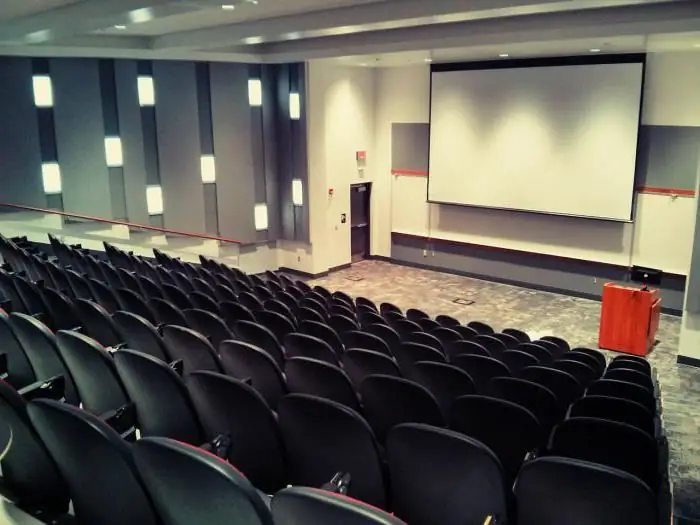In order for the lecture to be successful, it is necessary to prepare well for it. To do this, the lecturer must carefully consider what he wants to convey to the audience, and carefully read all the recommendations. Be prepared that you will have to spend some time searching for the necessary information to delve into several sources. So how do you prepare for a lecture and impress your audience? Let's figure it out.

Preparation steps
For a good performance, thorough preparation is necessary, it must be carried out in four stages.
- The first step is to decide what material to present to the audience, identify key points, and consider the order in which theoretical and practical material will be presented.
- The second step is to find the means by which you can get the message across. Here you can use methodological techniques that involve listeners in a discussion or dialogue, thereby developing their thinking. These can be incriminating questions, false statements, shocking information, etc.
- The third stage is the recording of abstracts and text. A two-hour lecture is characterized by 16-17 pages of material, as well as additional tables, applications, diagrams, etc.
- The fourth stage is the verification of the prepared material. It is necessary to speak aloud the recorded text, if necessary, rehearse it several times. After all, it will be rather ridiculous if you make a mistake during the lecture and mix up the information.

How to choose a theme
If you don't know how to prepare for a lecture, start by choosing a topic. It is she who determines the format of the meeting, includes certain key elements that consistently reveal the material to be read.
The topics of the lecture can be varied, you can take scientific or popular material that is very interesting to ordinary people. Also, in order to choose the right lecture topic, you need to pay attention to the following factors:
- purpose of meeting;
- where the meeting will take place;
- conditions for the lecture;
- allocated time;
- what else will be in the program;
- when the lecturer starts talking.

How to collect material
The topic is chosen, all the conditions are taken into account, and the question arises, how to prepare for the lecture next? It's time to move on to the content. It is very important to collect interesting material, for this you need to study several magazines or books on the necessary topics, select key thoughts that reveal the topic most clearly,look for the necessary information on the Internet, sit for quite a long time in the library.
If the topic is scientific, the accuracy of the information is very important. It is necessary to choose a text that tells about various achievements, experiments. You can conduct a comparative analysis so that there is no dry and monotonous lesson. You already know the basic recommendations for preparing and conducting lectures. It's time to get down to business!
How to plan a lecture?
When the topic of the meeting has already been determined and the material has been collected, it is important to think over an approximate lecture plan that will reveal the information as much as possible and will correspond to the ultimate goal, and it can be:
- educational;
- educational;
- developing.
Take the time to draw up a plan, because it is he who will help to conduct a meeting without jumping from topic to topic. Any lecture consists of three parts:
- intro;
- presentation of material;
- conclusion.
The introductory part should interest the listener. This can be achieved with the help of some incomplete thought, questions. It is important that the listener wants to know what will happen next. In the main part, it is necessary to present all the main material, create a discussion or dialogue, and in conclusion, draw conclusions, summarize the topics covered, answer the questions that have arisen.
Now you know how to prepare for a lecture, take into account all the nuances and be on top in front of any audience. It remains only to wish good luck in your endeavors!






